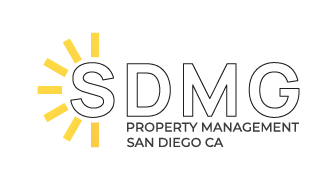Rental Property Expense Checklist for Landlords

Learn about how you can optimize your rental property investment.
New property owners frequently ask about the tax implications of leasing out their property. The straightforward response is that rental income is subject to income tax. To accomplish this, it’s essential to collaborate with a tax accountant for the relevant tax period. The amount of tax owed is contingent upon your individual situation and the tax bracket you belong to. There exist methods to lessen tax obligations by deducting qualifying expenses related to the rental business from income. In essence, this involves claiming allowable expenses as tax deductions. For those unfamiliar with tax regulations concerning rental income, further exploration will provide insight into eligible expenses for landlords.
Here are some key items you can claim as expenses:
- Depreciation of building structure over time
- Landlords can leverage tax deductions by depreciating the building
structure over time, acknowledging the gradual wear and tear that occurs. This deduction offers financial relief while reflecting the ongoing investment in property maintenance and upkeep.
- Landlords can leverage tax deductions by depreciating the building
- Repairs and maintenance
- Landlords can deduct expenses for repairs and maintenance, including
costs for fixing damages and keeping the property in habitable condition,
reducing taxable rental income and supporting property upkeep.
- Landlords can deduct expenses for repairs and maintenance, including
- Capital Improvement Depreciation
- Capital Improvement Depreciation refers to the gradual reduction in value
of property upgrades or renovations over time for tax purposes. Landlords can capitalize on tax deductions through capital improvement depreciation, allowing them to deduct the cost of property upgrades or renovations over time. This enables landlords to offset expenses,
enhancing property value while minimizing tax liabilities.
- Capital Improvement Depreciation refers to the gradual reduction in value
- Required safety items, such as smoke and/or fire alarms
- Costs for required safety items like smoke and fire alarms are deductible for landlords
- Cleaning, gardening and other property maintenance services
- Expenses for cleaning, gardening, and property maintenance services are deductible for landlords
- Mold treatment
- Costs for mold treatment services are deductible, helping to maintain property value and ensuring tenant health and safety.
- Extermination and pest control
- Expenditures on extermination and pest control services for the property
and around the property are deductible, supporting property maintenance
and tenant satisfaction.
- Expenditures on extermination and pest control services for the property
- Trash collection
- Expenses for trash collection services are deductible for landlords,
contributing to property cleanliness and tenant comfort, while reducing
taxable rental income.
- Expenses for trash collection services are deductible for landlords,
- Phone calls, internet and office supplies
- Landlords can often deduct expenses related to phone calls, internet
usage, and office supplies as business expenses.
- Landlords can often deduct expenses related to phone calls, internet
- Advertising and Marketing
- Landlords can often deduct advertising and marketing expenses incurred
to promote their rental properties, helping to attract tenants and maximize
occupancy rates.
- Landlords can often deduct advertising and marketing expenses incurred
- Travel to and from property
- Landlords can deduct travel expenses incurred when traveling to and from
their rental properties for maintenance, inspections, or other
business-related activities.
- Landlords can deduct travel expenses incurred when traveling to and from
- Education
- Landlords can often deduct expenses related to educational courses or workshops directly relevant to improving their property management skills or understanding of real estate laws and regulations.
- Tech and software
- Landlords may deduct expenses for tech and software used in property management, improving administrative processes and tenant communication.
- HOA fees
- Landlords can deduct homeowner association (HOA) fees as business
expenses, particularly if these fees contribute to maintaining or improving
rental property amenities.
- Landlords can deduct homeowner association (HOA) fees as business
- Letting agent fees
- Letting agent fees are deductible expenses for landlords, covering services related to tenant acquisition and management.
- Health and safety certificates
- Health and safety certificates expenses are deductible for landlords,
ensuring tenant well-being and regulatory compliance.
- Health and safety certificates expenses are deductible for landlords,
- Professional fees, such as accountancy and tax return management fees
- Landlords can deduct professional fees, such as those for accountancy
and tax return management, which encompass services like tax preparation and expense compilation, offering financial relief while ensuring compliance with tax regulations and optimizing deductions.
- Landlords can deduct professional fees, such as those for accountancy
- Property tax
- Property tax payments are deductible for landlords, offering relief on one
of the significant expenses associated with property ownership and
maintenance.
- Property tax payments are deductible for landlords, offering relief on one
- Sales tax
- Sales tax incurred on property-related purchases can be deducted by landlords, providing financial benefits and reducing taxable rental income.
- Landlord insurance
- Landlord insurance premiums are deductible expenses, ensuring protection against unforeseen damages and liabilities while lowering taxable rental income.
- Tenant screening
- Landlords can often deduct expenses associated with tenant screening,
such as fees for background checks and credit reports, as these costs contribute to ensuring responsible tenant selection and property protection. These deductions provide financial benefits while promoting effective risk management and property maintenance.
- Landlords can often deduct expenses associated with tenant screening,
- Closing costs
- Closing costs, such as legal fees and transfer taxes, are deductible
expenses for landlords incurred during property acquisition or sale, reducing taxable rental income and facilitating property transactions.
- Closing costs, such as legal fees and transfer taxes, are deductible
Navigating property taxation can be difficult, as it extends beyond mere income or gains derived from property transactions. Taxation encompasses all forms of income and capital gains, originating from a variety of sources. Introducing an additional property into your income and investment portfolio can significantly alter your tax landscape.
To ensure you complete your tax obligations accurately while optimizing your tax position, we recommend using the expertise of a property tax specialist. They can offer tailored guidance on the most tax-efficient strategies for property investment and maximize your profit.
